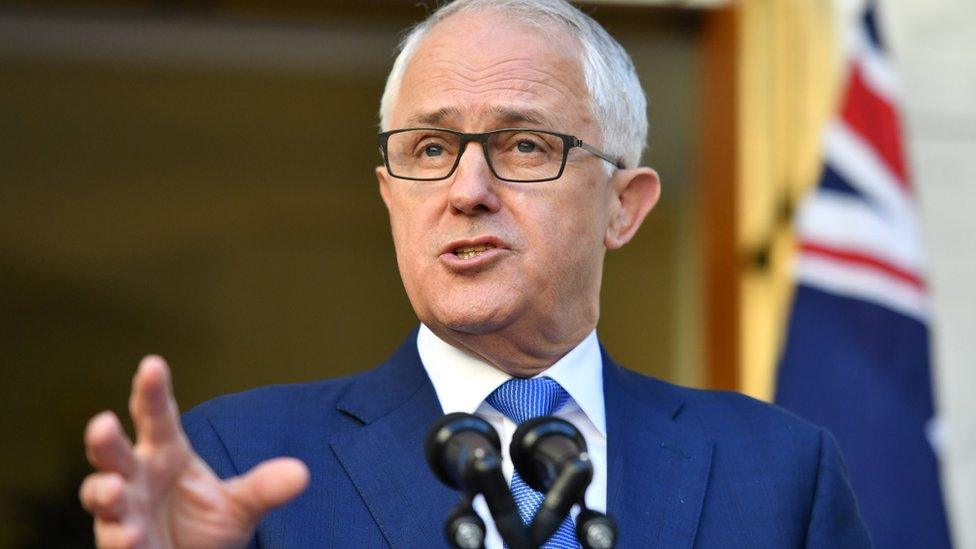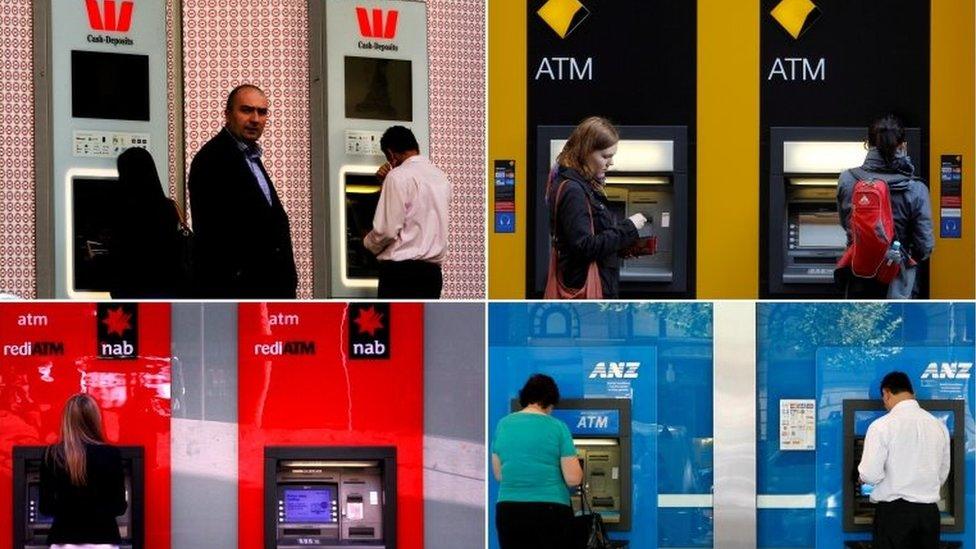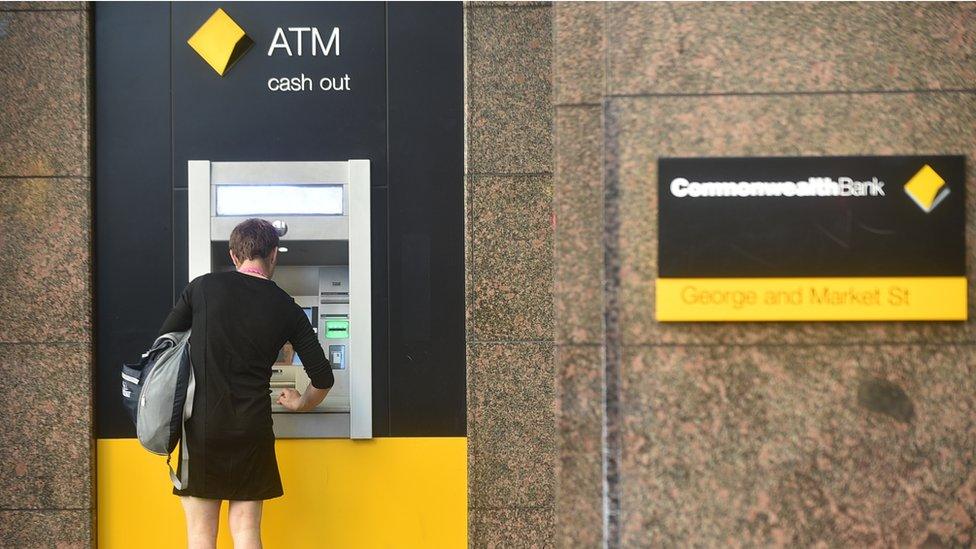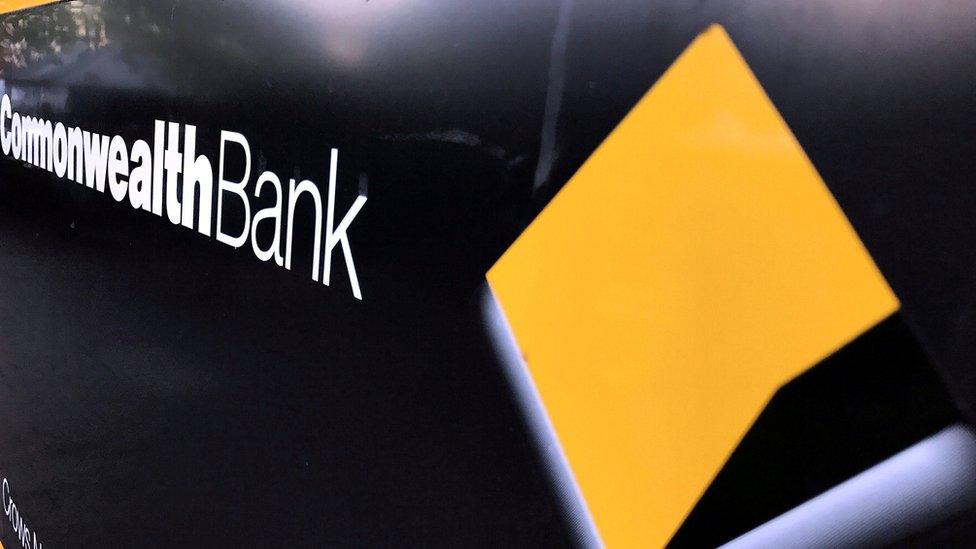Why is Australia investigating its banks?
- Published

Australia's banking and financial institutions have faced several scandals
Finance is Australia's biggest industry, and its banks are some of the most profitable in the world.
But now the nation's highest form of public inquiry is examining misconduct by the nation's banks and financial institutions.
The royal commission follows a decade of scandals that have rocked the sector.
How dominant are Australia's banks?
Australia's "Big Four" - Commonwealth Bank (CBA), ANZ, National Australia Bank (NAB) and Westpac - collectively have about 80% of the country's banking market.
A recent government-funded report found the sector was "unquestionably strong", external, but criticised levels of competition and transparency.
What have been the scandals?
All four major banks have faced misconduct allegations. They include:
Risky financial advice: Commonwealth Bank customers lost millions of dollars due to inappropriate advice from financial planners.
Dodgy mortgages: About 20 NAB bankers were sacked after issuing home loans based on incorrect or incomplete documentation.
Rate-rigging lawsuits: All four banks were accused of manipulating a key interest rate benchmark.
Alleged breaches of anti money laundering laws: Commonwealth Bank admitted it was late to disclose 53,000 suspect ATM transactions.
Analysts estimate that Australian banks have paid more than A$1bn (£550m; $780m) in penalties and compensation since the 2008 financial crisis.
Despite this, the banking giants have continued to post large profits, sometimes at record levels.
Why was an inquiry deemed necessary?
Momentum grew from continued public debate about whether banks were putting profits and shareholders ahead of customers.
Prime Minister Malcolm Turnbull had initially opposed an inquiry, but agreed in December that one was needed to restore confidence in the sector.

Malcolm Turnbull described the inquiry as "regrettable but necessary"
He said the royal commission would extend to the entire financial industry, including superannuation - or pension contributions - insurance and wealth management sectors.
The biggest banks said they welcomed the inquiry as a way to end "political uncertainty".
What will be investigated?
The catchily-titled 'Royal Commission into Misconduct in the Banking, Superannuation and Financial Services Industry' will examine misconduct which has already been established in the sector - as well as allegations about other wrongdoing.
It also has the remit to look at possible gaps in how the industry is monitored and regulated.
Anyone can make submissions to the inquiry - with bank customers among those expected to give plenty of input.
The commissioners will have the power to examine documents, call witnesses and take evidence. The inquiry is scheduled to take 12 months.
The banks say they remain confident about the process, but some industry watchers have predicted further damaging revelations.
What could happen afterwards?
The inquiry can make recommendations to reform the industry, and even prosecutions, if it finds wrongdoing.
But it cannot award compensation for individual cases or even directly tell institutions to take action. But it can propose redress schemes.
Could the inquiry fall short?
Critics have said a year-long inquiry may not be able to sufficiently investigate all allegations.
The most recent royal commission, which covered child sexual abuse, ran for four years.
- Published30 November 2017

- Published14 December 2017

- Published23 January 2018
